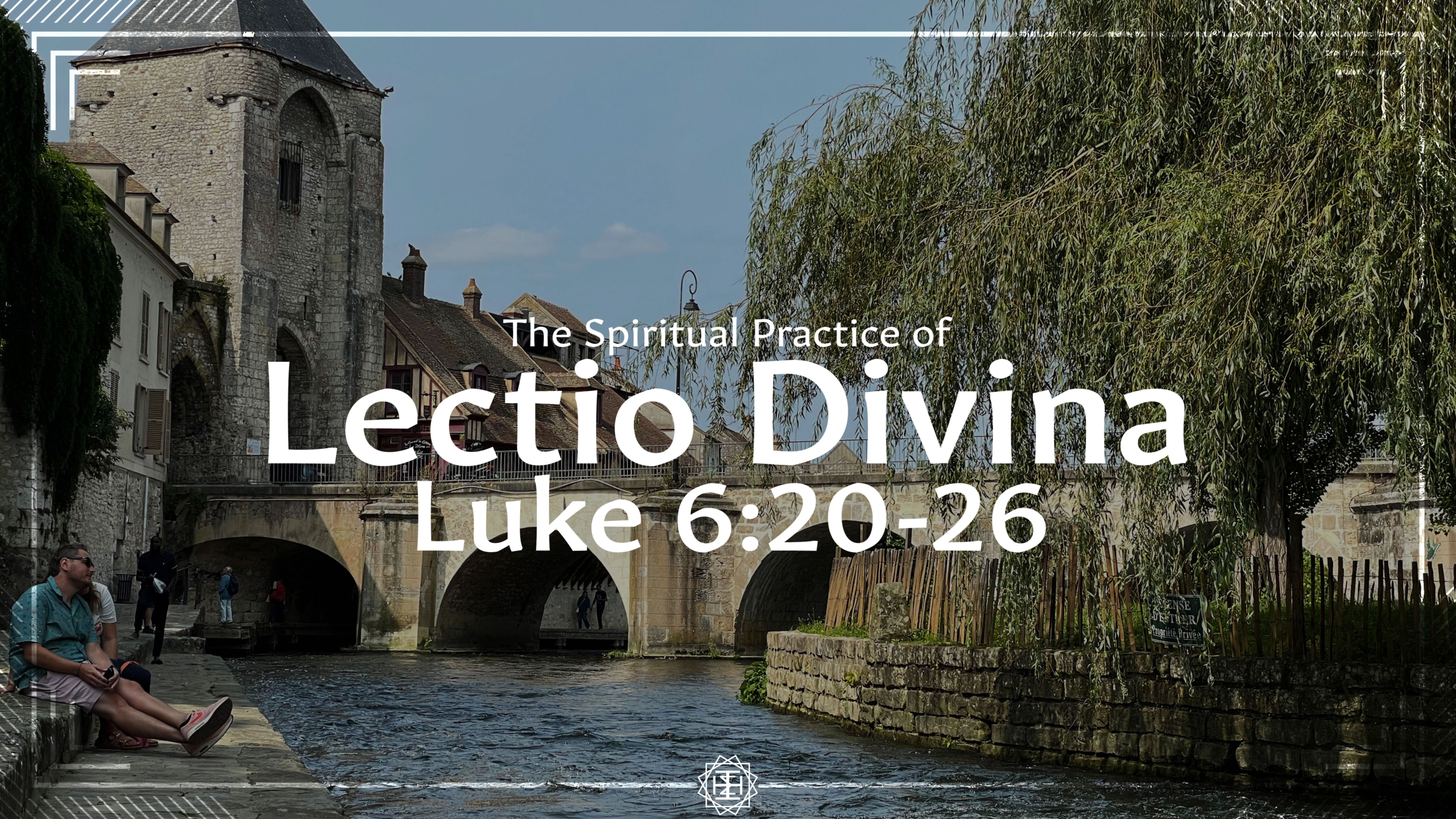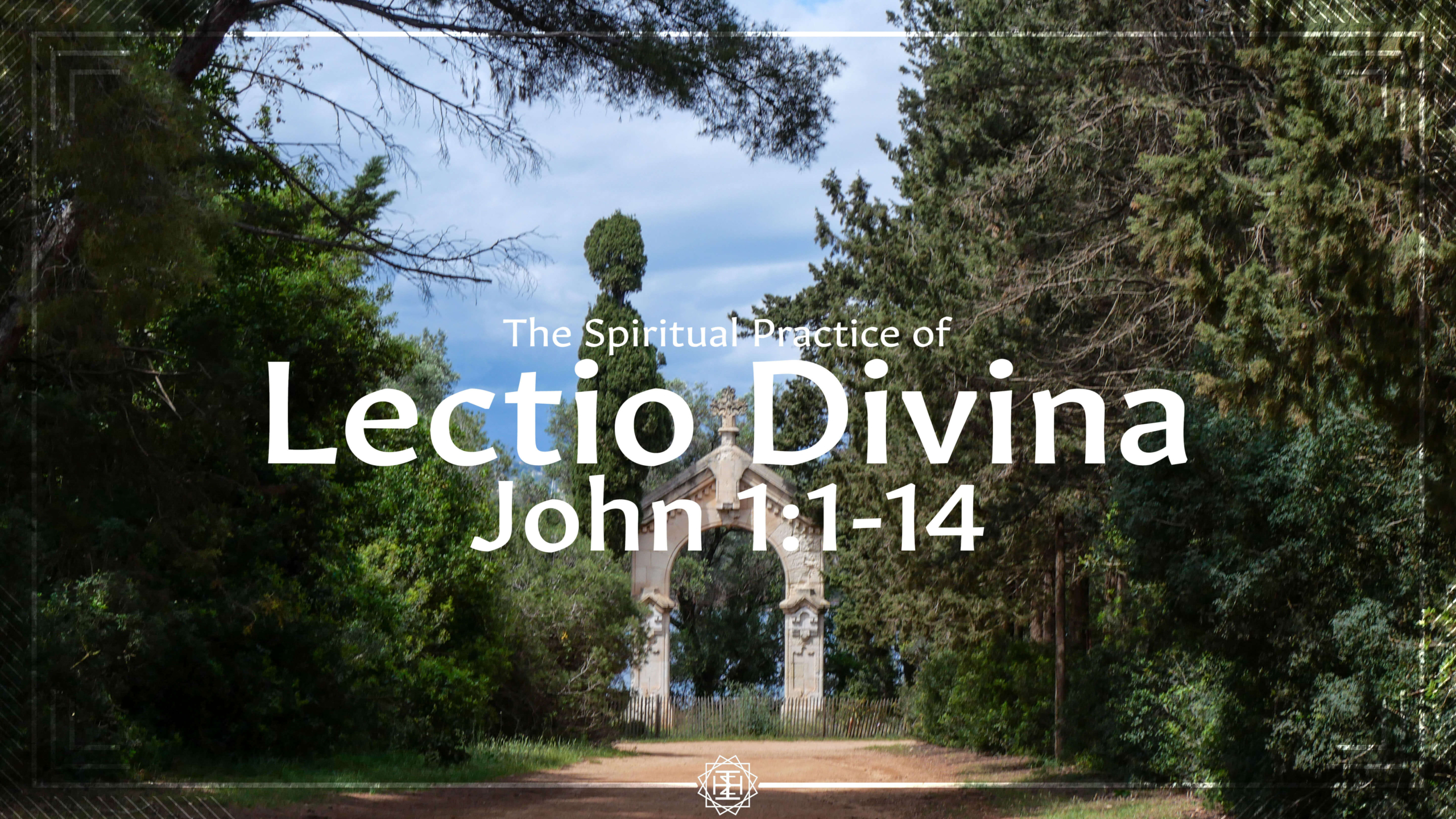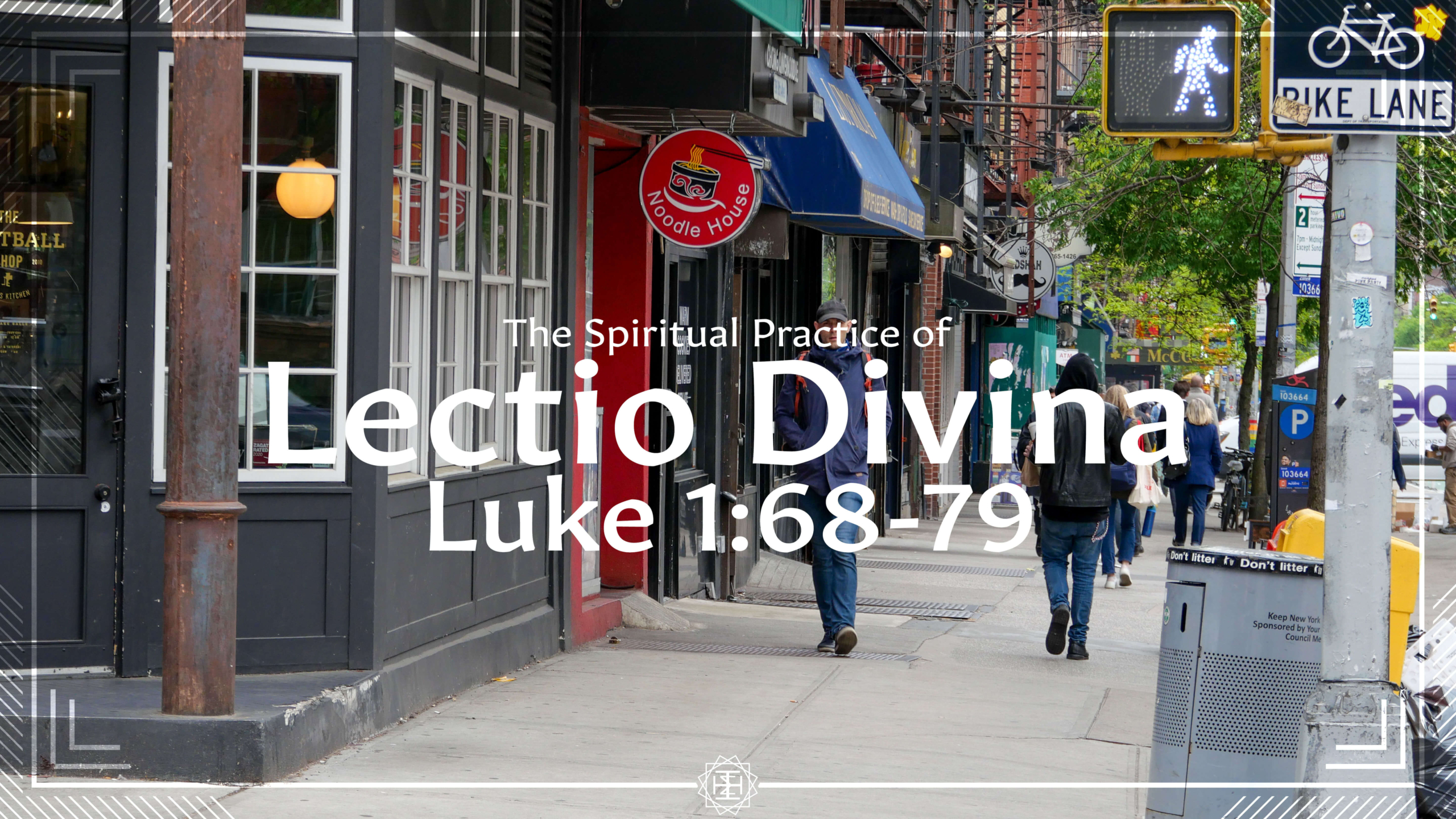Lectio Divina
Divine Reading
An engaged listening to a passage of scripture over multiple readings.
This is a Spiritual Practice of Urban Monastics.
Overview
Scripture is living and active as the Bible reminds us in Hebrews. Lectio Divina is a practice of listening to scripture read out loud while we allow the Holy Spirit’s presence to speak to us. When we quiet ourselves and meditate on the text, we allow space to experience God and rest in his love and grace.
Lectio Divina begins by preparing ourselves to meet with God through scripture. This is not a time for a theological analysis of the text. You don’t need to find a deep meaning in the text. Instead, we’re inviting the Spirit to simply meet us there.
One starts by quieting themself. They pray to invite the Holy Spirit to be present and illuminate text. We then move to a portion of scripture we’ve decided on, and when ready, read through the text slowly. After the first reading, we pause for several minutes to meditate on the text that was just read. Be mindful of words or phrases that stand out to you. Hold on to those, and allow the Spirit to speak through them. We then read the scripture a second time. Notice those words or phrases that stood out the first time, and spend time talking to God about what he is revealing. We’ll then read the same passage a third time, and after this we’ll spend time in contemplation.
A Short History
Lectio Divina has its roots in the early monastic traditions. It has been a meaningful way of engaging with the holy scriptures for centuries.
Before this practice formed, people lived and learned in an oral culture. They told stories of their history and of their faith. They expressed traditions and passed down stories from generation to generation. The written word was inaccessible to most at the time. However, the importance of dwelling on scripture remained.
Origen of Alexandria talked about the practice of dwelling on scripture. He said it was “seeking the meaning of divine words, which is hidden from most people.” This practice was learned by Ambrose of Milan, who taught it to Saint Augustine. This point in the 4th century marked the beginning of regular use in monastic traditions. Years later, in the 12th century, it was transformed in practice by the monk Guigo II. It was this monastic in Chartreuse in the French Alps, who defined the 4 steps to Lectio Divina. These steps are: Read, Meditate, Pray, and Contemplate. This is the basis of how we practice Lectio Divina today.
Many others we know of have practiced this over the centuries. The Desert Fathers, Saint Hilary of Poitiers, Saint John of the Cross, and Protestant John Calvin all practiced this to some extent. Today it is practiced by Protestants, Reformed, Puritans, Catholics, and Anglicans. It also continues to be practiced in monastic traditions.
Deeper Dive into the Practice
Lectio Divina is a slow, methodical, prayerful reading of, and listening to scripture, allowing the Spirit to speak through the text to us.
Start by being mindful of your body. Get into a comfortable position. Place both feet on the ground, posture upright. You can even place your hands open, facing upwards in your lap. Prepare by quieting yourself and praying. Invite the Holy Spirit to guide the time and the reading of scripture.
Try to limit your distractions during this time. Leave your phone face-down away from you, not touching it. Close your eyes if that will keep you from being distracted by things around you. Do whatever feels right to you.
Reading
Read through the scripture slowly and attentively. This will happen several times. Don’t worry about what the passage means. Don’t analyze it; just listen for what is coming up for you as you hear it. After the passage is read, take several minutes of quiet. The first time will be focused on meditating on the passage you just read.
Meditation
Meditate and ponder on the significance of the text. Allow the Spirit to highlight things for you. Note if there are words or phrases that stand out to you. You can repeat those words or phrases to yourself. Be open to whether God is asking something of you, or telling you something of himself. Meditate on the text.
After several minutes of quiet, read the same passage again. This time, when you spend several quiet minutes after the reading, respond in silent prayer.
Prayer
Dialogue with God about what has risen up in you. Gratitude? Praise? Lament? Comfort? Confusion? Are there specific words or phrases you want to bring to Him? Do you want to ask God why certain things were brought up?
Again, after several minutes, read the passage a third time. This third time of silence, spend in contemplation.
Contemplation
Unlike meditation, which is an active reading of the text, contemplation is quiet stillness in the presence of God. This is also not a speech-kind of prayer time, but rather, a silent dwelling with God. Resting in His presence. Resting in His love.
You will probably find your mind wandering at certain points in the silence. That is completely normal, and happens to everyone. When you notice your mind wandering, just acknowledge it, then gently bring it back to this time, as many times as you need to. If you’re new to this, the quiet may feel long and awkward, but that’s ok. Allow the Spirit to work, and listen.
Also, whatever you feel during this time is valid. Remind yourself that whatever your expectations of this time are—and if they’re met or not – God is still here with each of us. He is still pleased that you took this time to connect with Him. And He has love and grace for you in that.
Guides for Lectio Divina
How to pray Lectio Divina
Learn how to pray Lectio Divina, and how to prepare your own Lectio Divina.
Teaching Guide for Lectio Divina
Resources and aides to help you guide other in discoverying and praying Lectio Divina.
Coming Soon
Engage with this Spiritual Practice
-

The Beatitudes from Luke – Luke 6:20-26
Read by
This reading starts with:
Then He looked up towards His disciples, and began to speak. Blessed are the poor, for yours is the Kingdom of God. Blessed are you who hunger now, for you will be satisfied.
-

The Word became Flesh – John 1:1-14
Read by
This reading starts with:
In the beginning was the Word, and the Word was with God, and the Word was God. In the beginning He was with God. Through Him all things came into being.
-

Benedictus – Luke 1:68-79
Read by
This reading starts with:
Blessed is the Lord, the God of Israel, who has come to set His people free. He has raised up for us a mighty savior, from the house of His servant David.

